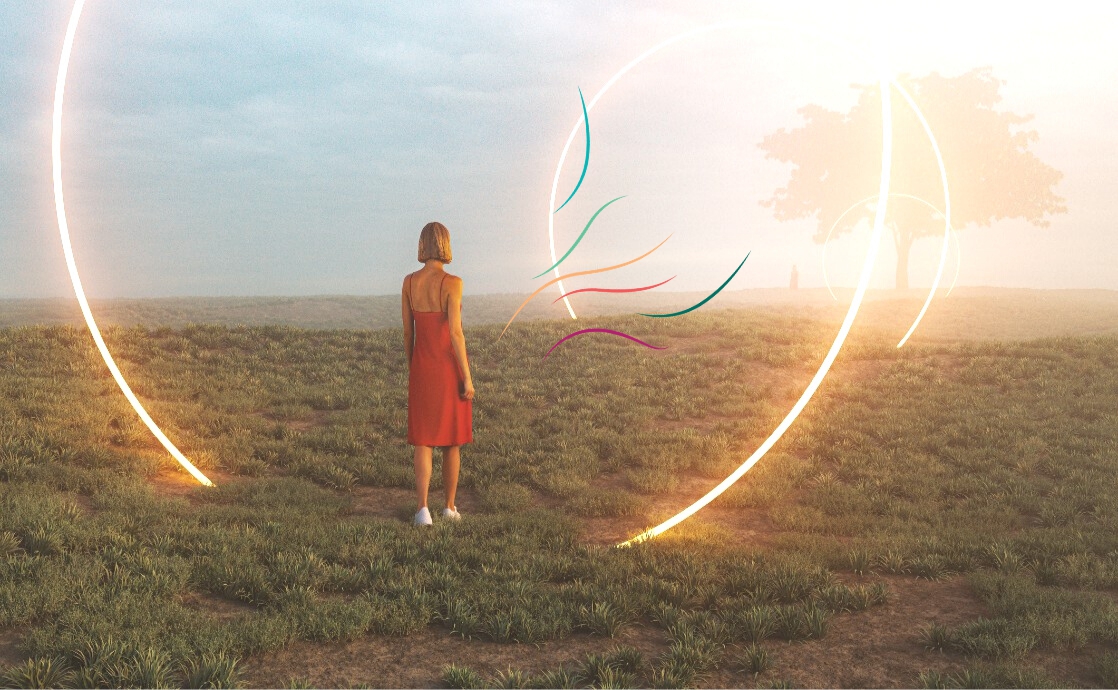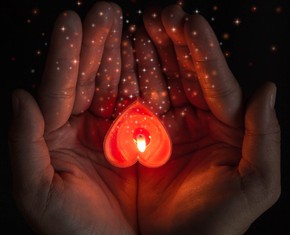The views expressed in our content reflect individual perspectives and do not represent the authoritative views of the Baha'i Faith.
In 2003 the noted Swedish philosopher and Oxford University professor Nick Bostrom wrote a controversial “Philosophical Quarterly” paper called “Are We Living in a Computer Simulation?”
Bostrom argued that an imagined, technologically advanced future civilization which possessed immense computing power would need only a fraction of that power to simulate new realities, complete with conscious beings interacting with each other.
In other words, this world we inhabit could all be a simulacrum — a more sophisticated version of “The Matrix,” where we live as virtual beings in an imagined, computer-generated universe.
RELATED: Is the Material World a Mirage?
If you’ve ever seen a mirage, those temporary, naturally-occurring optical phenomenon, you know that an image which seems real can trick the eye and temporarily fool us. Bostrom’s idea asks: Why not think of this world as a mirage, too?
Mirages, though, are not hallucinations or virtual computer constructs — instead, light rays create them, because light travels through differing layers of air with different temperatures, and bend accordingly. Light that comes from the top of an object — the sky, for example — will arrive at the human eye lower than light from the bottom. That produces an inverted image, which creates the illusion of sky as water. If you’ve ever driven down a desert road in the summer, you’ve seen that realistic mirage of water ahead.
It seems to many scientists and philosophers that Bostrom has raised an interesting possibility: could our world be somehow removed from “base reality,” somehow less than truly real?
Despite the physical problems, troubles, and tests of this material existence, and despite how real it seems to be on a day-to-day basis, the Baha’i writings, especially this passage written by Abdu’l-Baha, suggest that “this nether world” ultimately does constitute a mirage:
Grieve thou not over the troubles and hardships of this nether world, nor be thou glad in times of ease and comfort, for both shall pass away. This present life is even as a swelling wave, or a mirage, or drifting shadows. Could ever a distorted image on the desert serve as refreshing waters? No, by the Lord of Lords! Never can reality and the mere semblance of reality be one, and wide is the difference between fancy and fact, between truth and the phantom thereof.
Know thou that the Kingdom is the real world, and this nether place is only its shadow stretching out. A shadow hath no life of its own; its existence is only a fantasy, and nothing more; it is but images reflected in water, and seeming as pictures to the eye.
From a spiritual perspective, then, we can consider the transitory nature of this world — the physical place we call home but ultimately all leave behind — as a mirage, too. Like a mirage, it will soon fade. For every last one of us, this mirage won’t persist for more than a century or so. After a relatively short period of time we all move on to the next world, where the material aspects of life no longer have any lasting substance. In that eternal next life, Abdu’l-Baha said in the book “Some Answered Questions,” we will encounter a truer and more lasting reality:
The ultimate rewards, which consist in life everlasting, have been explicitly recorded in all the heavenly Scriptures. They are divine perfections, eternal bounty, and everlasting joy. The ultimate rewards are the gifts and perfections that man attains in the spiritual realms after his ascension from this world, while the existential rewards are those true and luminous perfections which are attained while still abiding in this world, and which are the cause of everlasting life.
This world we all live in now is no hallucination, of course. Our human consciousness allows us to feel its pain and its joys too deeply for it to be an actual mirage or some kind of simulation. It’s all too real, as we each know, but the Baha’i teachings say its reality pales in comparison to the eternal existence beyond this temporary one. Perhaps that’s what Bostrom’s supposition about a simulated reality really suggests.
RELATED: What Is Reality – and Can Our Senses Understand it?
Today is the last one of this year’s Intercalary Days, the annual period of Baha’i holy days that symbolize attaining the Kingdom of God and inhabiting that eternal kingdom we will all someday reach.
That’s why Ayyam-i-Ha, the Arabic name for the four or five Baha’i Intercalary Days that occur this time every year, refers symbolically to the eternal life of the soul by going beyond the temporal attributes and characteristics of the Creator and focusing on a future existence that surpasses all time, as mystically expressed by Baha’u’llah in this passage from “The Hidden Words”:
O Son of Worldliness! Pleasant is the realm of being, wert thou to attain thereto; glorious is the domain of eternity, shouldst thou pass beyond the world of mortality; sweet is the holy ecstasy if thou drinkest of the mystic chalice from the hands of the celestial Youth. Shouldst thou attain this station, thou wouldst be freed from destruction and death, from toil and sin.
Baha’u’llah designated the annual period of Ayyam-i-Ha “amid all the nights and days” of the calendar as a time to directly recognize and joyfully praise and celebrate the totality of the Divine Essence. These joyous Intercalary Days, separated as they are from the ordinary cycle of weeks and months, allow us to symbolically transcend this physical world, as the infinite reality of the Creator transcends time and place.
So, as Abdu’l-Baha pointed out in his writings, the Baha’i Intercalary Days stand for infinitude, for transcending time and attaining the eternal and lasting realities of existence, for passing beyond this material mirage, for contemplating the mystery and unknowable essence of the Supreme Being:
O ye loved ones of God! Know ye that the world is even as a mirage rising over the sands, that the thirsty mistaketh for water. The wine of this world is but a vapour in the desert, its pity and compassion but toil and trouble, the repose it proffereth only weariness and sorrow. Abandon it to those who belong to it, and turn your faces unto the Kingdom of your Lord the All-Merciful, that His grace and bounty may cast their dawning splendours over you, and a heavenly table may be sent down for you, and your Lord may bless you, and shower His riches upon you to gladden your bosoms and fill your hearts with bliss, to attract your minds, and cleanse your souls, and console your eyes.
You May Also Like
Comments

















Very interesting. Do you know of any interpretation of the last quote you used? I have been challenged for the last 50 years trying to dive deeper in statements that are abstract. I'll try to watch here or contact me on LinkedIn.
"When man... sees the state, the organization and the perfection of the world, he will be convinced that in the possible world there is nothing more wonderful that that which already exists... [T]he universe has no imperfection, so that if all beings became pure intelligence and reflected for ever and ever, it is impossible ...that they could imagine anything better than that which exists." (Some Answered Questions 177)